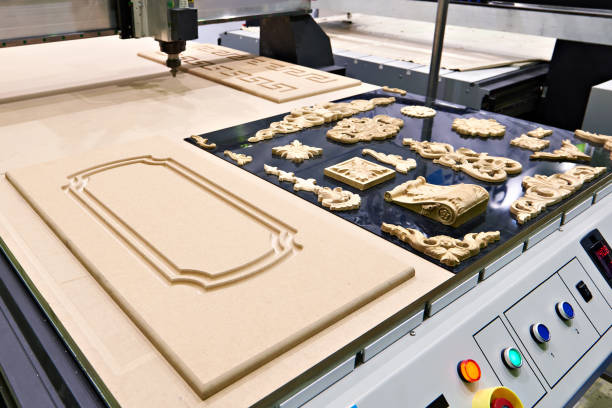Starting a CNC machine shop is an exciting endeavor for those passionate about manufacturing and precision engineering. With the right planning, tools, and expertise, you can build a business that caters to various industries, providing high-quality CNC machining services. This guide will help you understand the steps and considerations involved in setting up your CNC machine shop, from business planning to equipment selection and operational best practices.
Understanding the Basics of a CNC Machine Shop
A CNC machine shop is a specialized workspace where CNC (Computer Numerical Control) machines are used to manufacture parts and components. These shops are integral to industries like aerospace, automotive, and medical devices, producing precision parts that meet tight tolerances.
What Does a CNC Machine Shop Do?
A CNC machine shop uses computer-controlled machines to cut, shape, and create parts from various materials. The precision offered by CNC machining makes it invaluable for producing components that need exact specifications. Shops often handle tasks like milling, turning, drilling, and even more advanced processes such as 5-axis machining.
- Milling: This is where a rotating tool moves along multiple axes to shape a stationary workpiece.
- Turning: In this process, the workpiece rotates while a cutting tool shapes it. Ideal for cylindrical parts.
- Drilling: Creating precise holes with consistency.
The machinery in a CNC machine shop typically includes a mix of CNC mills, CNC lathes, and spindle motors, such as the 6KW Air-Cooled Spindle. Spindles are an essential part of the CNC setup, dictating the efficiency and precision of cutting operations. 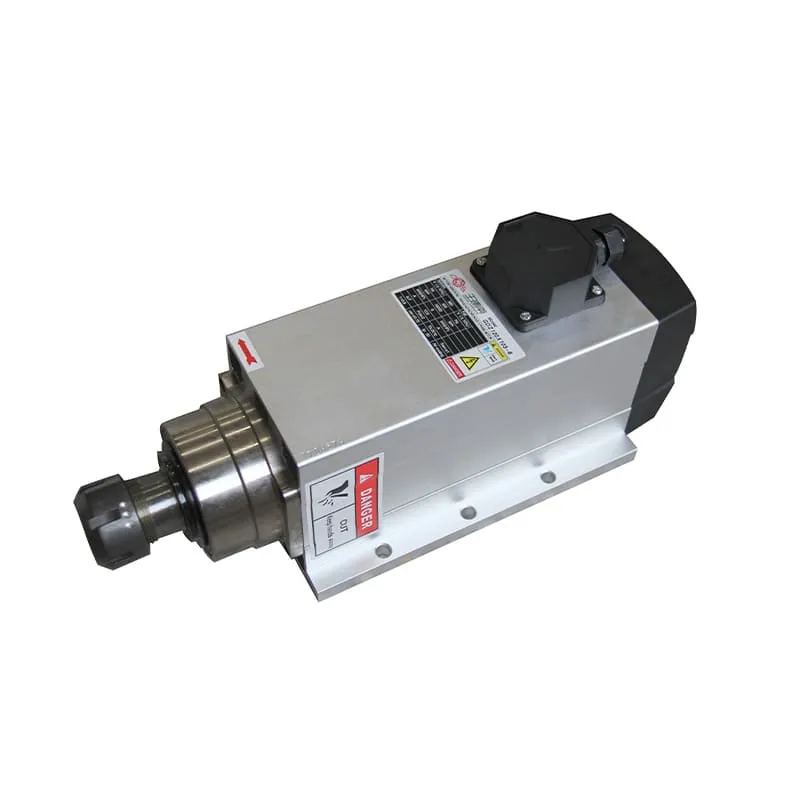
Creating a Business Plan for Your CNC Machine Shop
Starting any business requires a well-thought-out plan, and a CNC machine shop is no exception. A solid business plan will guide you through the setup process and help you make informed decisions.
Key Elements of a CNC Shop Business Plan
- Market Research: Understand the demand for CNC services in your area. Identify potential clients in industries like aerospace, automotive, or electronics.
- Initial Investment: Calculate the cost of CNC machines, software, tooling, and workspace. Machines like the 7.5KW ER32 Air-Cooled Spindle are integral investments.
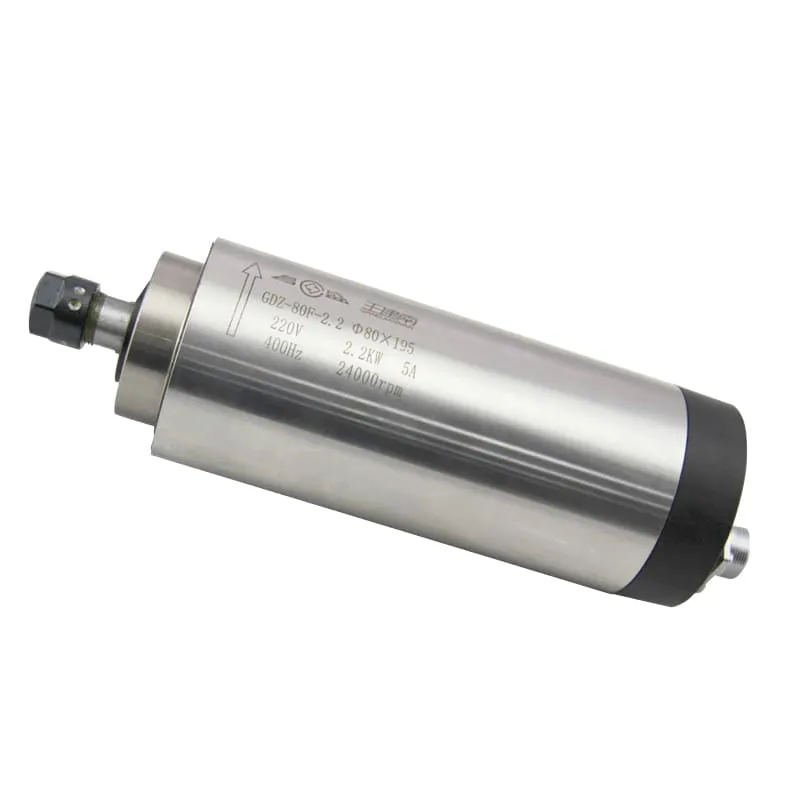
- Target Market: Define whether you want to cater to large-scale manufacturers, small businesses, or hobbyists.
- Competitor Analysis: Study other CNC shops to understand what they do well and where you could potentially offer something better or different.
- Marketing Strategy: Develop a plan to attract clients through online advertising, partnerships, or by showcasing expertise in certain machining processes.
Choosing the Right CNC Machines and Tools
The equipment you choose is a significant determinant of your CNC machine shop’s success. Selecting the right tools can improve efficiency, precision, and expand the types of projects your shop can handle.
Types of CNC Machines Needed
- CNC Mills: Ideal for cutting and shaping metals and plastics. A spindle like the 24000RPM 3.2KW ER20 Water-Cooled Spindle is perfect for a CNC mill setup.
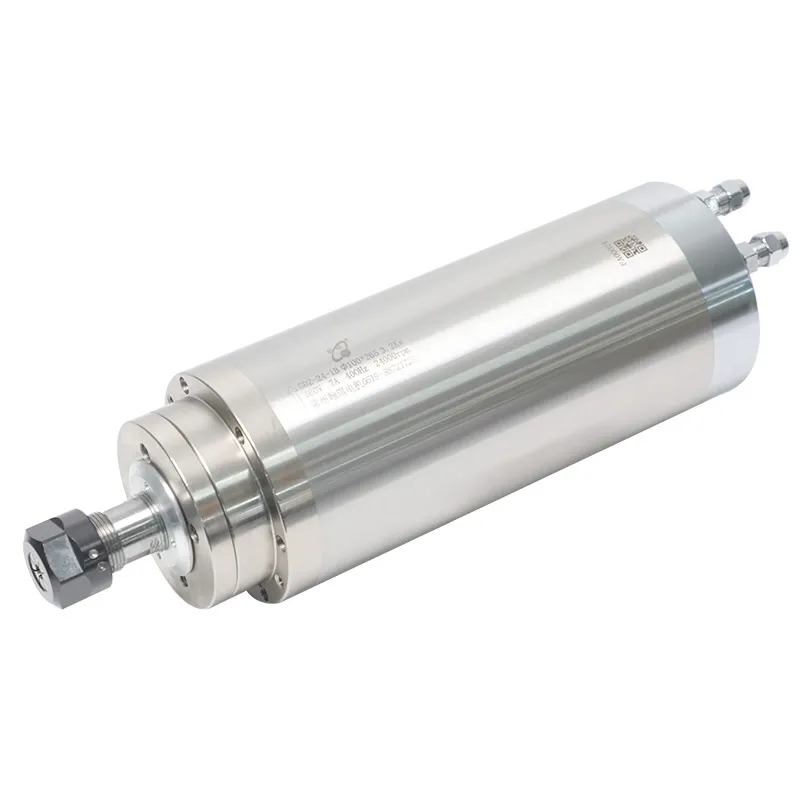
- CNC Lathes: Useful for cylindrical objects, CNC lathes are critical for jobs requiring precise round shapes.
- Router Spindles: If you plan to work on wood, plastic, or soft metals, a CNC router with a spindle like the 24000RPM 800W ER11 Water-Cooled Spindle is ideal.
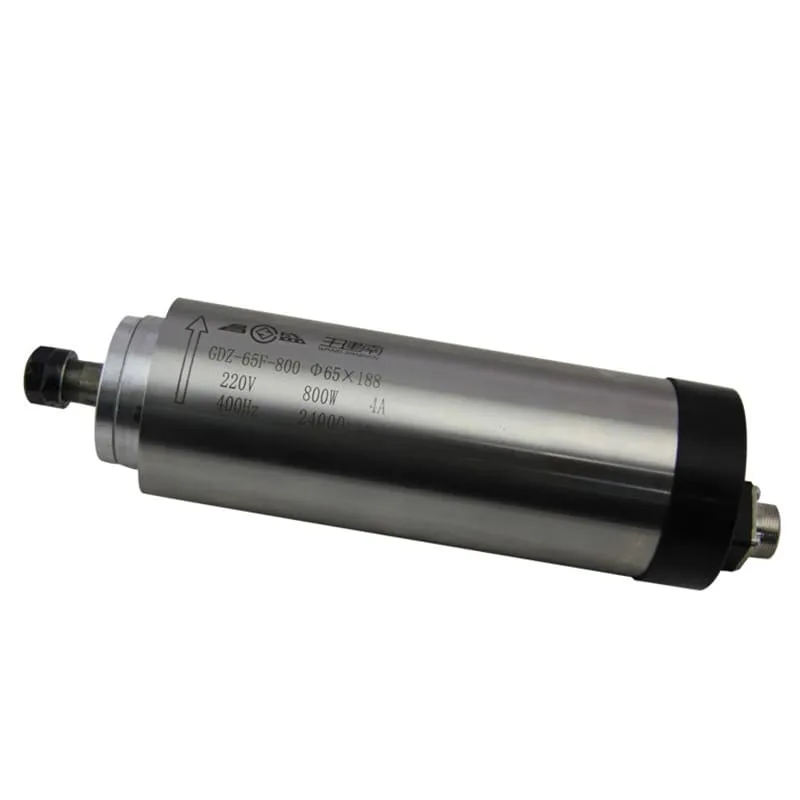
Additional Equipment
- CAD/CAM Software: Tools like Fusion 360, SolidWorks, or Mastercam are necessary for designing parts and generating the tool paths CNC machines follow.
- Cutting Tools and Tool Holders: Depending on the materials you plan to work with, choose the appropriate end mills, drills, and tool holders.
- Measuring Instruments: Calipers, micrometers, and other precision instruments are needed to ensure parts meet tight tolerances.
Considerations When Buying CNC Equipment
- Capabilities: Match the machine capabilities to your target projects. If you want to produce high-precision aerospace components, ensure your equipment is capable of tight tolerances.
- Machine Size: Ensure your workspace is large enough to accommodate the machines you buy. Smaller shops may need to consider compact CNC models.
- Power Requirements: Verify the power requirements for your machines, particularly for heavy-duty spindles like the 5.5KW ER32 4-Pole Air-Cooled Spindle.
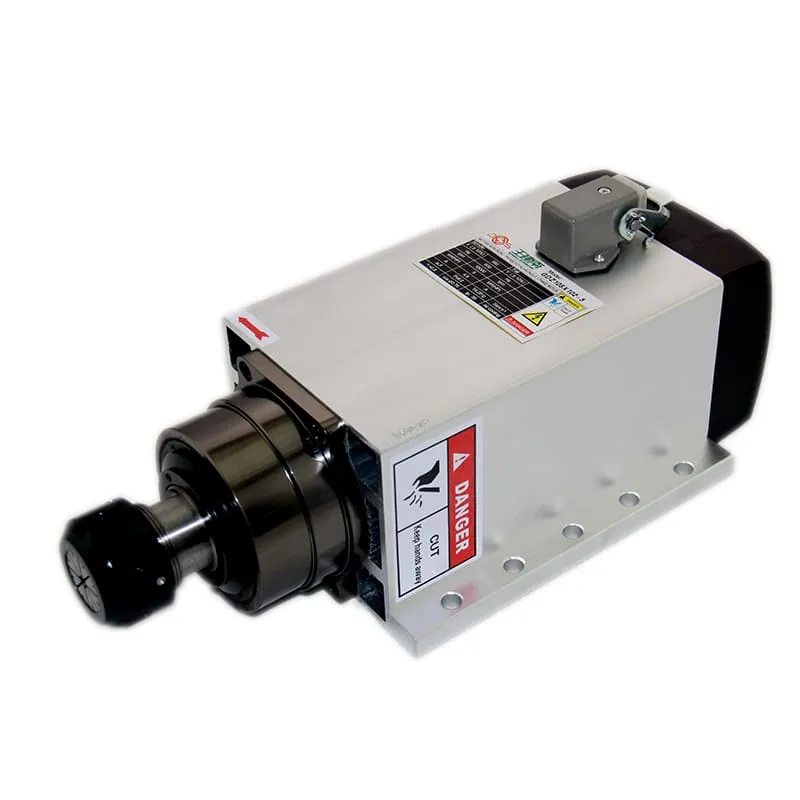
Setting Up Your CNC Machine Shop
Once you have the equipment, setting up your shop is the next step. A well-organized shop improves workflow, safety, and productivity.
Organizing Your Workspace
- Machine Layout: Arrange machines in a way that allows a logical flow of materials. For example, parts should easily move from one machine to another without unnecessary steps.
- Tool Storage: Ensure that tools are easily accessible. A well-organized tool rack can save time during setups and changeovers.
- Workbenches and Tables: Keep workbenches near the machines for easy setup and adjustments. These benches should have all the necessary tools for quick modifications.
Safety Considerations
- Proper Ventilation: CNC machines produce a lot of dust and fumes. Ensure proper ventilation, especially when working with materials like wood or composites.
- Safety Equipment: Equip your shop with safety glasses, gloves, and fire extinguishers. Ensure that all employees are trained on machine safety protocols.
- Electrical Setup: Proper wiring is critical, especially when dealing with high-power machines like those with large spindles.
Hiring Skilled CNC Machinists
No machine shop can function without skilled machinists. Hiring the right team is as essential as investing in the best equipment.
Skills to Look for in CNC Machinists
- Experience with CNC Software: Machinists should be familiar with CNC programming languages like G-code and software like Mastercam.
- Attention to Detail: CNC machining is all about precision. A good machinist must have a keen eye for detail to ensure every part meets specifications.
- Mechanical Aptitude: Understanding how CNC machines work mechanically is essential for diagnosing and fixing issues that may arise.
Training and Development
Invest in your team’s growth by offering training sessions in areas like 5-axis machining or advanced CAM programming. Regular skill updates ensure your shop remains competitive in an ever-evolving industry.
Estimating Costs and Budgeting for Your Shop
Setting up a CNC machine shop requires a significant financial investment. Proper budgeting helps ensure that you have the resources to build and grow your business.
Key Costs to Consider
- Equipment Purchase: CNC machines, tools, and spindles like the 2.2KW ER20 Air-Cooled Spindle are significant upfront costs.
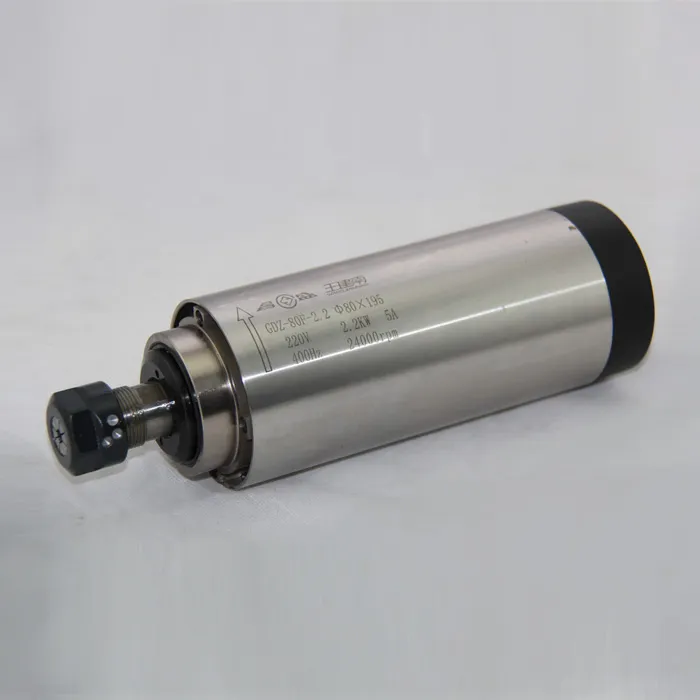
- Facility Rent and Utilities: The cost of renting or buying space for your shop, along with monthly utility costs.
- Labor Costs: Wages for CNC machinists, operators, and other staff.
- Software and Licensing: Budget for CAD/CAM software, including any subscriptions or licenses.
Funding Options
- Bank Loans: Traditional loans are often used to fund equipment purchases.
- Equipment Financing: Many suppliers offer financing options for CNC machines and spindles.
- Government Grants: In some regions, grants are available for small businesses or manufacturing startups.
Marketing Your CNC Machine Shop
Once your CNC machine shop is set up, you need to attract clients. A solid marketing plan will ensure that your shop gains visibility and attracts a steady stream of orders.
Online Marketing Strategies
- Website Development: Create a professional website that showcases your services, expertise, and past projects. Ensure it’s optimized for search engines so potential customers can easily find you.
- Content Marketing: Publish informative articles on CNC machining processes, like the types of spindles you use, such as the 60000RPM 300W ER8 Water-Cooled Spindle. Including pictures helps potential clients visualize your capabilities.
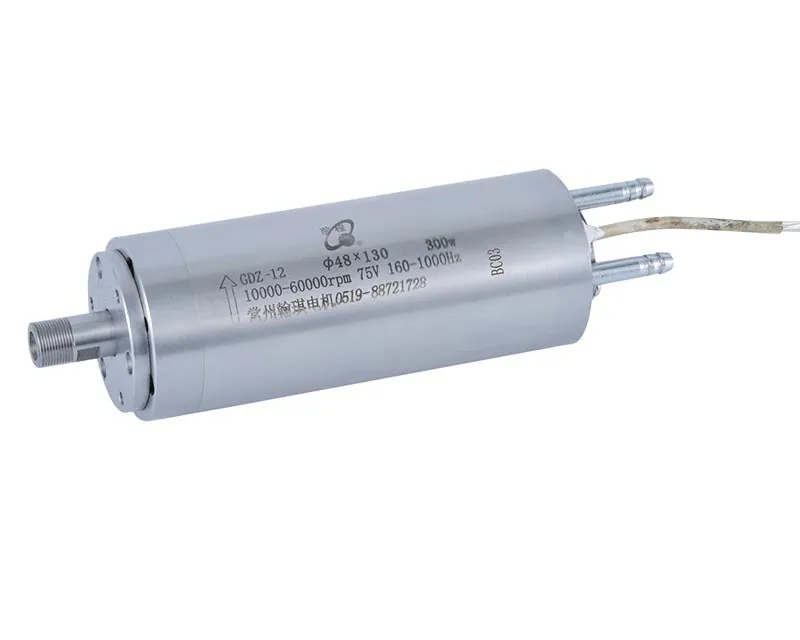
- Social Media: Use platforms like LinkedIn to connect with potential clients in manufacturing industries. Post videos of your CNC machines in action to showcase your shop’s capabilities.
Networking and Partnerships
- Local Business Partnerships: Establish relationships with local manufacturers who may need CNC services.
- Industry Events: Attend trade shows and manufacturing expos to showcase your capabilities and connect with potential customers.
- Offer Value-Added Services: Offer services like prototyping or reverse engineering to differentiate your shop from competitors.
Quality Control and Continuous Improvement
Maintaining high quality in every part you produce is critical to building a reputation for excellence.
Quality Control Processes
- Inspection Tools: Use tools like CMM (Coordinate Measuring Machines) to ensure part dimensions meet the required specifications.
- Standard Operating Procedures (SOPs): Develop SOPs for every aspect of production to maintain consistency.
- Documentation: Keep detailed records of each job, including setup sheets, inspection reports, and adjustments made.
Lean Manufacturing Principles
- Waste Reduction: Reduce material waste by optimizing tool paths and using efficient setups.
- Continuous Improvement (Kaizen): Always look for ways to improve the efficiency and quality of your processes.
FAQs
1. How much does it cost to start a CNC machine shop?
The initial investment for a CNC machine shop can range from $50,000 to $150,000 or more, depending on the size, equipment, and location.
2. What types of CNC machines are necessary for a shop?
A CNC shop typically needs CNC mills, CNC lathes, and router spindles for different types of materials and projects.
3. How do I choose the right spindle for my CNC machine?
Choosing the right spindle depends on the material and type of work. High-speed spindles like the 60000RPM 300W ER8 Water-Cooled Spindle are perfect for detailed work.
4. How can I market my CNC machine shop effectively?
Use a combination of online marketing, local partnerships, and social media to promote your services.
5. What skills should a CNC machinist have?
A CNC machinist should be skilled in G-code programming, machine operation, and have an understanding of CAD/CAM software.
Conclusion
Setting up a CNC machine shop is a challenging but rewarding venture that can lead to a successful business in the world of precision manufacturing. With the right combination of quality equipment, skilled machinists, and a solid business plan, you can create a shop that delivers high-quality parts for various industries. Spindle selection plays a crucial role in the capabilities of your shop, and investing in the right equipment, such as those available at spindlemotorshop.com, will ensure your shop is set up for success. Start your journey today and make your mark in the exciting world of CNC machining!

